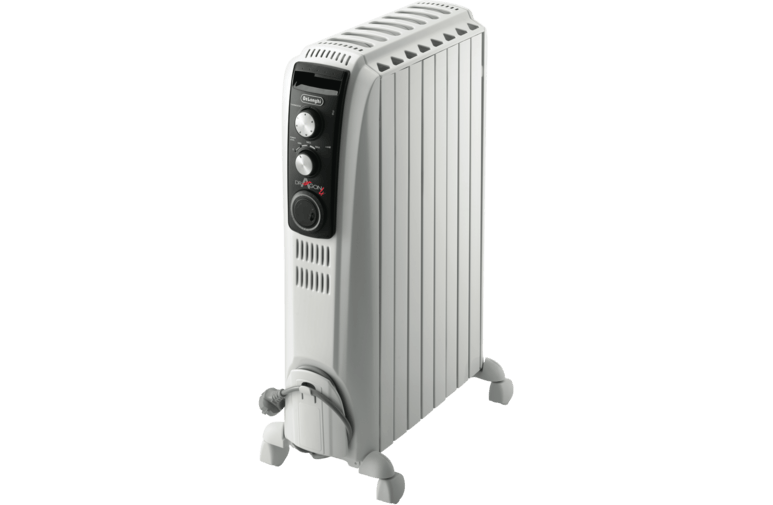
This image has format transparent PNG with resolution 773x505.
You can download this image in best resolution from this page and use it for design and web design.
Oil heater PNG with transparent background you can download for free, just click on download button.
An oil heater, also known as an oil-filled heater, oil-filled radiator, or column heater, is a common form of convection heater used in domestic heating. Although filled with oil, it is electrically heated and does not involve burning any oil fuel; the oil is used as a heat reservoir (buffer), not as a fuel.
Oil heaters consist of metal columns with cavities inside, where heat transfer oil flows freely around the heater. A heating element at the base of the heater heats up the oil, which flows around the cavities of the heater by convection. The oil has a relatively high specific heat capacity and high boiling point. The high specific heat capacity allows the oil to effectively transfer thermal energy from the heating element, while the oil's high boiling point allows it to remain in the liquid phase for the purpose of heating, so that the heater does not have to be a high pressure vessel.
The heating element heats the oil, which transfers heat to the metal wall through convection, through the walls via conduction, then to the surroundings via air convection and thermal radiation. The columns of oil heaters are typically constructed as thin fins, such that the surface area of the metal columns is large relative to the amount of oil and element which provides the warmth. A large surface area allows more air to be in contact with the heater at any point in time, allowing for the heat to be transferred more effectively, which results in a surface temperature which is safe enough to touch. The relatively large specific heat capacity of the oil and metal parts means this type of heater takes a few minutes to heat up and cool down, providing a short-term thermal store.
Although oil heaters are more expensive to run and provide far less spatial heating than gas heaters, they are still commonly used in bedrooms and other small-to-medium-sized enclosed areas. This is because gas heaters, especially without flue, are not suitable for bedroom use - gas heaters cannot be used in confined spaces due to the reduced oxygen, and the emissions produced. This leaves electrically powered heaters, such as oil heaters, fan heaters and heat pumps, as the only alternative.
Several efficiency metrics can be measured in regard to heaters, such as the efficiency of heating a room with a given amount of power, and the efficiency of the electrical generator which powers the heater and power loss from transporting the electricity over power lines. Measures may also consider how effective a heater keeps the temperature of a space above a certain point. Such measures would find inefficiencies in heating an already warm room. Many heaters (the majority of available models) are equipped with a thermostat to prevent this inefficient heating, which in turn reduces running costs. This feature was much more common in oil heaters than in cheaper fan heaters until recently; thus many older oil heaters will be cheaper and more efficient to run than their contemporary fan heaters that lack a thermostat.
Typical oil heaters range in power consumption/output from 500 to 2400 watts, and their length and number of columns is roughly proportional to their power rating. A 2400 watt oil heater is usually approximately 1 meter (3.3 feet) in length. Operating costs are typically linearly determined by the heater's wattage and the length of operating time: 500 watt heater will take at least twice as long to reach the same thermostat setting as a 1000 watt unit; the total consumption of electricity is the same for both.
All electric resistance heaters are 100% efficient at converting incoming electric energy into heat. However, since most mains electricity is produced by coal/oil/gas generators with ~30% efficiency, electric heat is often less efficient and more expensive than combustion heaters (which directly convert oil/gas to heat). By contrast, an electrical heat pump used for home heating typically has an efficiency well above 100%, expressed as its coefficient of performance, because it moves outside heat into a room rather than generating it.
In this page you can download free PNG images: Oil heater PNG images free download